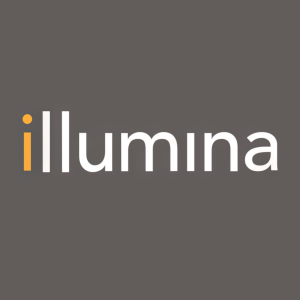Mercy Offers New GRAIL Blood Test to Detect 50+ Types of Cancer
Mercy and GRAIL have announced a partnership to offer the innovative Galleri blood test for multi-cancer early detection (MCED). This test identifies early cancer signals for over 50 cancer types, including aggressive types like pancreatic and ovarian cancers. Recommended for individuals at higher risk, such as those aged 50+, the test aims to complement existing cancer screening methods. Although not covered by insurance, Mercy will assist qualifying patients with costs. The Galleri test could significantly enhance early cancer detection and treatment prospects.
- Galleri test detects early signals for over 50 types of cancer, including aggressive ones.
- Test available at Mercy, enhancing cancer screening options for patients.
- Potential to significantly improve early cancer detection and treatment success.
- Galleri test currently not covered by insurance, leading to out-of-pocket costs for patients.
- Use of test is restricted for certain populations (e.g., pregnant individuals, those under 21, and active cancer patients).
Insights
Analyzing...
“Recommended cancer screenings in the
The MCED test, which is intended to complement
“Early detection can play a critical role in cancer treatment, allowing cancers to be caught when treatment is more likely to be successful,” said
The MCED test is recommended for adults with an elevated risk for cancer, such as those age 50 or older. Galleri is available by prescription only and use of the test is not recommended for those who are pregnant, 21 years or younger, or undergoing active cancer treatment. Patients interested in the test can visit mercy.net/EarlyCancerDetection to fill out a form and, if eligible, be contacted by a Mercy care navigator to walk them through the ordering and testing process. Results will be delivered through care navigators approximately two weeks after blood is drawn and, if a positive signal is detected, they will coordinate additional testing and care.
One of the first Mercy patients to schedule the test was
“My dad died when he was 51 from pancreatic cancer, one of the worst cancers because once you know you have it, the cancer is too far gone,” Dixon said. “It’s always been a lingering fear. I was 16 then; I’m now 55. This test gives me some peace of mind rather than not knowing and just waiting. I wish my dad had been able to have access to this blood test. He might be alive today and know my daughter, his grandchild.”
In a clinical study, the Galleri test demonstrated the ability to detect a shared signal from more than 50 types of cancer, over 45 of which lack recommended screen tests today. Because the blood test is not currently covered by insurance, patients will pay out of pocket. Mercy will work with patients who qualify for but are unable to pay the total cost of the test.
“Technology continues to push the boundaries on what we are able to do in medicine, making it more predictive, proactive and personalized for patients,” said Dr.
About Mercy
Mercy, one of the 25 largest
About GRAIL
GRAIL is a healthcare company whose mission is to detect cancer early when it can be cured. GRAIL is focused on alleviating the global burden of cancer by developing pioneering technology to detect and identify multiple deadly cancer types early. The company is using the power of next-generation sequencing, population-scale clinical studies, and state-of-the-art computer science and data science to enhance the scientific understanding of cancer biology, and to develop its multi-cancer early detection blood test. GRAIL is headquartered in
For more information, please visit grail.com.
Important Galleri Safety Information
The Galleri test is recommended for use in adults with an elevated risk for cancer, such as those aged 50 or older. The Galleri test does not detect all cancers and should be used in addition to routine cancer screening tests recommended by a healthcare provider. Galleri is intended to detect cancer signals and predict where in the body the cancer signal is located. Use of Galleri is not recommended in individuals who are pregnant, 21 years old or younger, or undergoing active cancer treatment.
Results should be interpreted by a healthcare provider in the context of medical history, clinical signs and symptoms. A test result of “Cancer Signal Not Detected” does not rule out cancer. A test result of “Cancer Signal Detected” requires confirmatory diagnostic evaluation by medically established procedures (e.g., imaging) to confirm cancer.
If cancer is not confirmed with further testing, it could mean that cancer is not present or testing was insufficient to detect cancer, including due to the cancer being located in a different part of the body. False-positive (a cancer signal detected when cancer is not present) and false-negative (a cancer signal not detected when cancer is present) test results do occur. Rx only.
Laboratory/Test Information
GRAIL’s clinical laboratory is certified under the Clinical Laboratory Improvement Amendments of 1988 (CLIA) and accredited by the
View source version on businesswire.com: https://www.businesswire.com/news/home/20220712005539/en/
For GRAIL
Corporate Communications
pr@grail.com
Investor Relations
ir@grail.com
For Mercy
314-251-4472
bethany.pope@mercy.net
Source:







